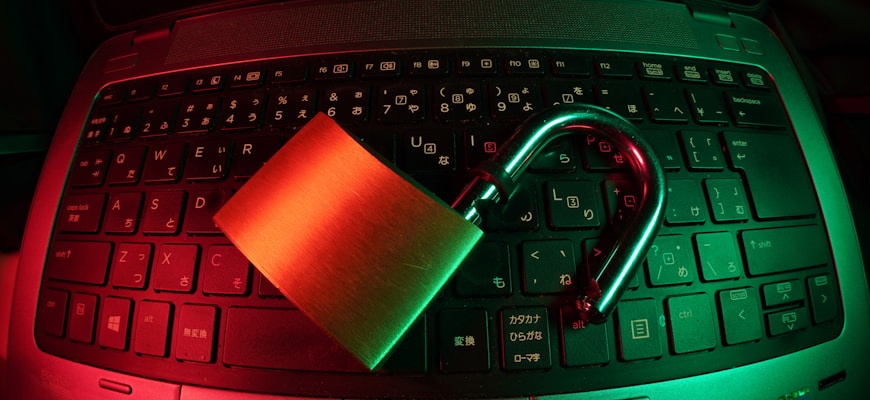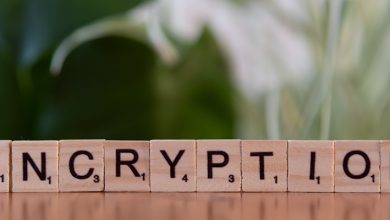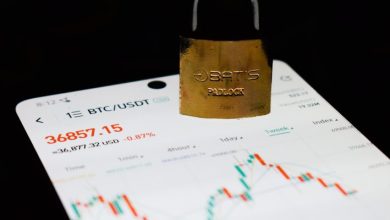How to Protect Your Crypto Assets from Cyber Threats

- Understanding the risks of cyber threats in the world of cryptocurrency
- Best practices for securing your digital wallet and private keys
- How to identify and avoid common phishing scams targeting crypto users
- The importance of using secure and reputable cryptocurrency exchanges
- Tips for creating strong and unique passwords for your crypto accounts
- Utilizing two-factor authentication to add an extra layer of security to your assets
Understanding the risks of cyber threats in the world of cryptocurrency
In the world of cryptocurrency, it is crucial to understand the risks associated with cyber threats. As the popularity of digital assets continues to rise, so does the interest of cybercriminals looking to exploit vulnerabilities in the system. These threats can come in many forms, such as phishing attacks, malware, and hacking attempts.
Phishing attacks are one of the most common ways that cybercriminals try to steal your cryptocurrency. They often use deceptive emails or websites to trick you into revealing your private keys or passwords. It is essential to be cautious and never click on suspicious links or provide sensitive information to unknown sources.
Malware is another significant threat to your crypto assets. Malicious software can infect your devices and steal your private keys, allowing hackers to access your funds. To protect yourself from malware, make sure to use reputable antivirus software and keep your devices up to date with the latest security patches.
Hacking attempts are also a prevalent risk in the world of cryptocurrency. Hackers may try to breach the security of cryptocurrency exchanges or wallets to steal funds. To mitigate this risk, it is crucial to use secure and reputable platforms for trading and storing your digital assets.
By understanding the risks of cyber threats in the world of cryptocurrency, you can take proactive steps to protect your crypto assets. Stay vigilant, use secure practices, and keep your devices and accounts secure to safeguard your investments from potential threats. Remember that prevention is key when it comes to protecting your cryptocurrency from cybercriminals.
Best practices for securing your digital wallet and private keys
When it comes to securing your digital wallet and private keys, there are several best practices that you should follow to protect your crypto assets from cyber threats.
- One important practice is to use a hardware wallet to store your private keys securely offline. This will help prevent hackers from gaining access to your keys through online attacks.
- Make sure to regularly update your wallet software to the latest version to patch any vulnerabilities that could be exploited by cyber criminals.
- Enable two-factor authentication on your wallet to add an extra layer of security. This will require you to provide a second form of verification, such as a code sent to your phone, when accessing your wallet.
- Avoid storing large amounts of cryptocurrency in online wallets or exchanges, as they are more vulnerable to attacks. Instead, transfer your funds to a secure hardware wallet for long-term storage.
- Keep your private keys and recovery seed phrase in a safe place, such as a physical safe or safety deposit box. Do not share this information with anyone and make sure to keep multiple copies in case of loss or damage.
How to identify and avoid common phishing scams targeting crypto users
One of the most common cyber threats facing cryptocurrency users is phishing scams. These scams involve tricking individuals into revealing their sensitive information, such as login credentials or private keys, by posing as a legitimate entity. To protect your crypto assets from phishing scams, it is crucial to be able to identify and avoid them.
- Be cautious of unsolicited emails or messages asking for your private information.
- Double-check the URL of any website requesting your login credentials to ensure it is legitimate.
- Avoid clicking on suspicious links or downloading attachments from unknown sources.
- Use two-factor authentication whenever possible to add an extra layer of security to your accounts.
By staying vigilant and following these precautions, you can significantly reduce the risk of falling victim to phishing scams targeting crypto users. Remember, it is always better to be safe than sorry when it comes to protecting your valuable assets.
The importance of using secure and reputable cryptocurrency exchanges
When it comes to protecting your cryptocurrency assets from cyber threats, one of the most important steps you can take is to use secure and reputable cryptocurrency exchanges. These exchanges act as the gateways to the digital asset world, allowing you to buy, sell, and trade cryptocurrencies securely. By choosing an exchange that has a strong track record of security and reliability, you can significantly reduce the risk of falling victim to cyber attacks.
Secure exchanges employ a variety of measures to protect their users’ funds and personal information. These measures may include encryption, two-factor authentication, cold storage solutions, and regular security audits. By using an exchange that prioritizes security, you can have peace of mind knowing that your assets are in safe hands.
Reputable exchanges also tend to have robust customer support systems in place, making it easier for you to resolve any issues or concerns that may arise. In the fast-paced world of cryptocurrency trading, having access to timely support can be crucial in safeguarding your assets.
Tips for creating strong and unique passwords for your crypto accounts
When it comes to protecting your crypto assets from cyber threats, one of the most important steps you can take is to create strong and unique passwords for your accounts. Here are some tips to help you create passwords that are difficult for hackers to crack:
- Include a mix of uppercase and lowercase letters, numbers, and special characters in your password.
- Avoid using easily guessable information such as your name, birthdate, or common words.
- Make your password at least 12 characters long to increase its complexity.
- Consider using a passphrase instead of a single word, as this can make your password harder to crack.
- Use a different password for each of your crypto accounts to minimize the risk of multiple accounts being compromised if one password is leaked.
By following these tips and creating strong, unique passwords for your crypto accounts, you can help protect your assets from cyber threats and keep your investments secure.
Utilizing two-factor authentication to add an extra layer of security to your assets
Utilizing two-factor authentication (2FA) is a crucial step in adding an additional layer of security to your valuable crypto assets. By implementing 2FA, you can significantly reduce the risk of unauthorized access to your accounts and protect them from cyber threats.
Two-factor authentication works by requiring users to provide two different authentication factors before gaining access to their accounts. This typically involves something you know (like a password) and something you have (like a mobile device). By combining these two factors, 2FA makes it much harder for cybercriminals to breach your accounts.
When setting up 2FA for your crypto assets, make sure to use a reputable authentication app or hardware key. Avoid using SMS-based authentication, as it is less secure and can be vulnerable to SIM swapping attacks. Additionally, regularly review and update your 2FA settings to ensure maximum security.



